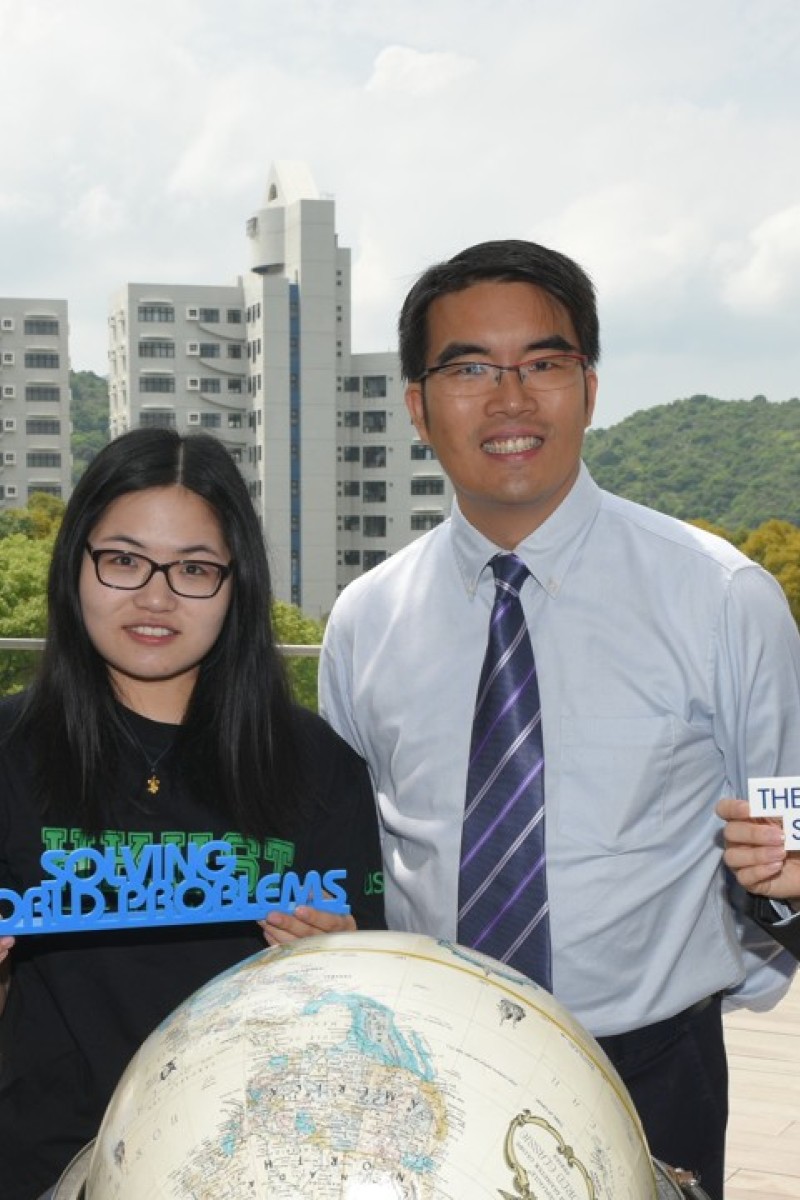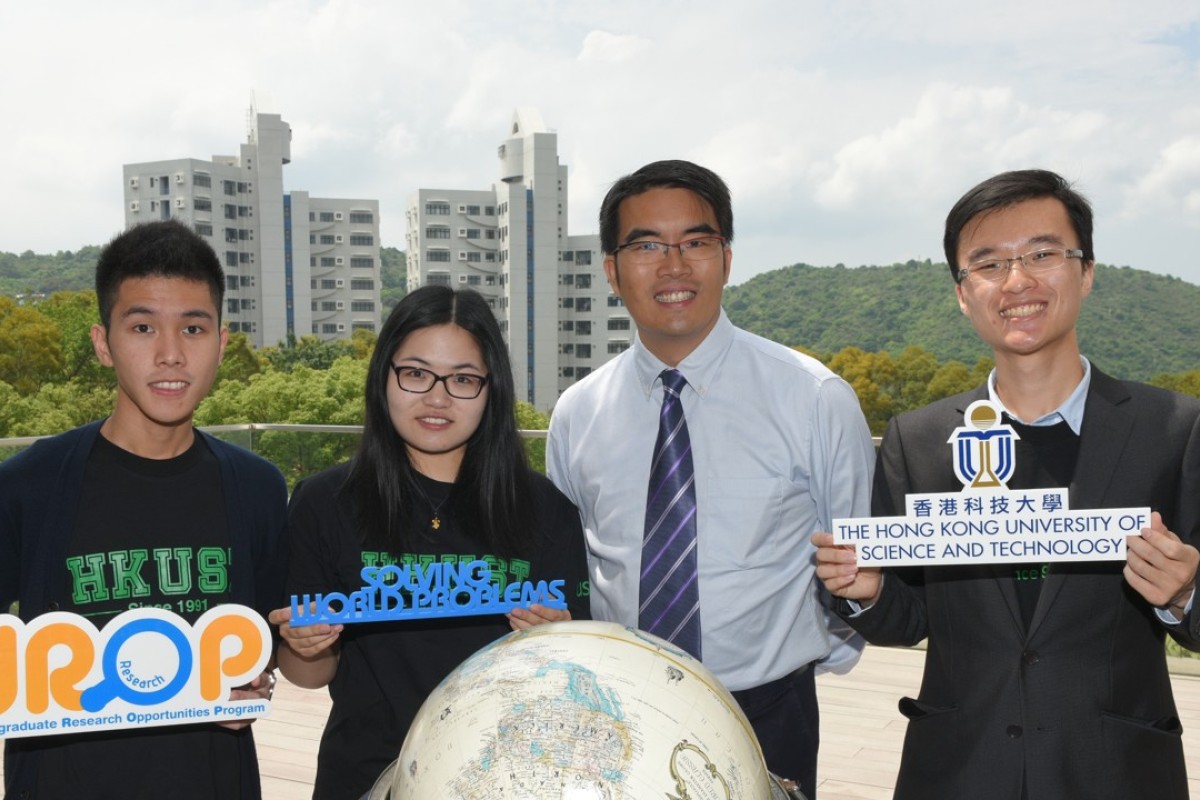
HKUST’s Undergrad Research Opportunities Programme's top projects seek to solve energy shortage and other global issues
From a new way to check crops, to a way of keeping our world’s finances in better shape, here are the three projects that have come out of UROP at Hong Kong University of Science and Technology
 Jordy Sulaiman (first left), champion Guo Wenshuo (second left), and David Ren (right) have all won praise for what their research.
Jordy Sulaiman (first left), champion Guo Wenshuo (second left), and David Ren (right) have all won praise for what their research.This year’s top three winners of the Undergraduate Research Opportunities Programme (UROP) at Hong Kong University of Science and Technology (HKUST) attempted to solve global problems, such as food shortages, the world’s financial crisis, and energy scarcity, with their research. Some 300 students enrolled in the programme to research and explore their interests in the hope of further developing their scientific, technological or financial knowledge.
This year’s UROP top spot went to third-year physics student Guo Wenshuo, who developed a stable financial system that could prevent another global financial crises in future.
Guo told Young Post that the 2008 collapse of global financial services firm Lehman Brothers had inspired her to create and establish a new financial system that would increase financial stability. Her win was not without its obstacles though.
“A major challenge I faced was how to optimise [the system],” she said. “I conducted lots of trials as I tried to solve the problem of efficiency, and I applied an algorithm to improve the system.”
The 21-year-old student said she felt very proud to have helped establish this system and to have won the UROP championship. “I’ve had the chance to present my project at international conferences, and lots of researchers have given me good advice. That’s a good start – but I can’t forget there are more challenges that lie ahead.”
One of the runner-ups was David Ren Da-wai, a third-year physics student, who won praise for his low-cost “crop doctor” camera, which can check the health of a crop using infrared sensors. Ren, 21, discovered during his research that he could turn a normal camera into an infrared camera to do this. This camera, which he named the “crop doctor”, is 30 times cheaper than existing imagers, and is far less costly to use than a satellite.
Ren had said he will not file a patent for his design, as he wants the “crop doctor” to be easily accessible by farmers in poor areas.
Jordy Sulaiman, a fourth-year student majoring in chemical and biomolecular engineering, was another runner-up thanks to his project to combine platinum with nickel. This will hopefully speed up the development of direct alcohol fuel cells (DAFC), which is a newer and cleaner energy source, and is more efficient than the sources that we use now.
Sulaiman said he plans to submit his work and findings to the journal American Chemical Society (Catalysis) in the hopes of sharing his hoped to share more work with other people in need of solving environmental problems.
